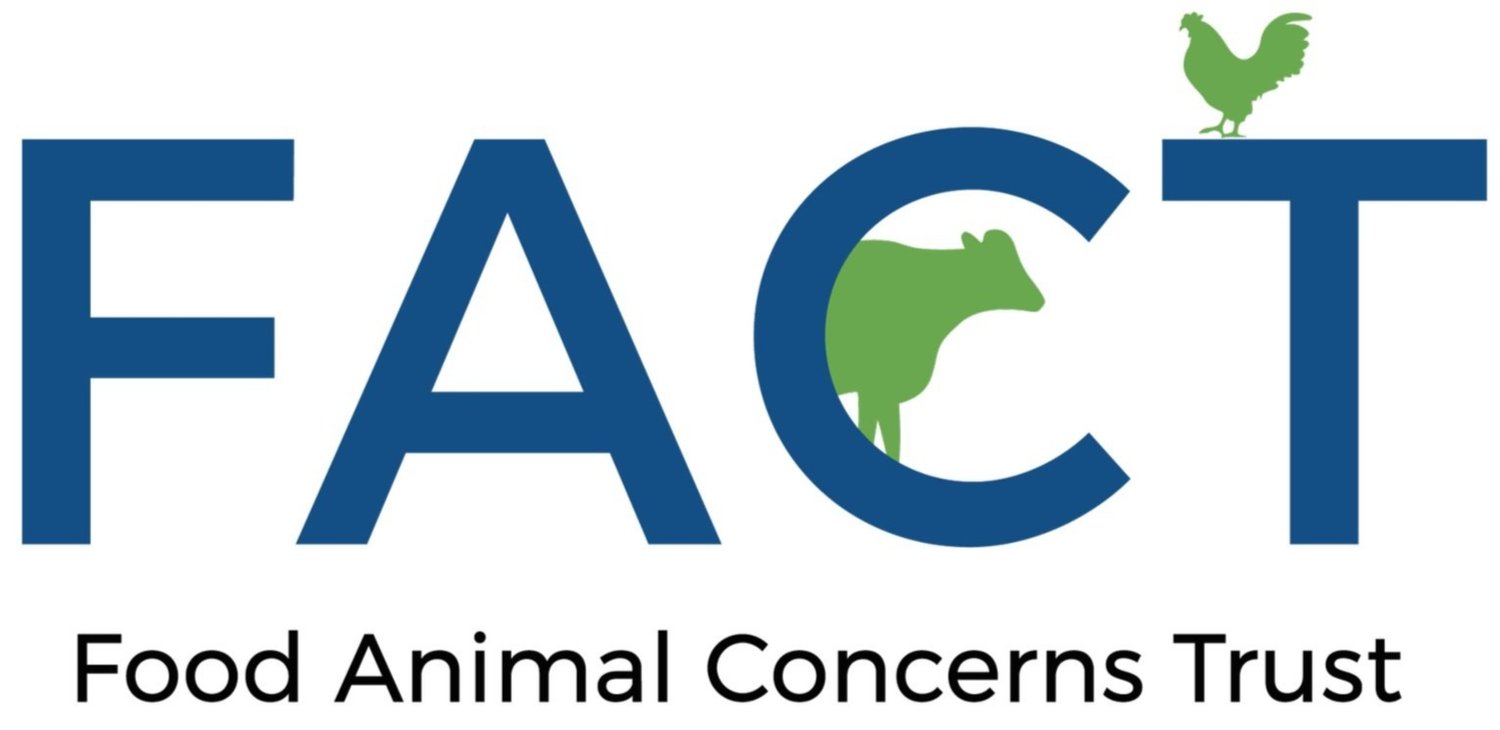The FDA Allows the Sale of Salmonella-Contaminated Livestock Feed
Ignoring Human Health, Scientific Evidence, and Its Own Stated Policy
FACT’s new report exposes a dangerous failure by the Food and Drug Administration (FDA): the agency is allowing the sale of livestock and poultry feed contaminated with types of Salmonella known to cause serious illness—and even death—in both humans and animals. Read the report here.
Send a message to the FDA and demand that they make sure that feed for animals is free of dangerous Salmonella.
Background:
Salmonella is a bacterial pathogen that can cause severe disease in both animals and people when they ingest it. It primarily infects the intestines, but in severe cases can spread to the bloodstream and other parts of the body, leading to intense sickness and even death. Public health officials divide Salmonella into different types called serotypes. Any serotype can cause illness, but some are more dangerous and some are more likely to infect specific animal species.
Once a food animal becomes infected by ingesting Salmonella in contaminated food, it then sheds the bacteria in its manure. This can lead to rapid spread among animals on huge factory farms, where animals are crowded together in constant contact with their own manure. Salmonella from infected animals can contaminate food when they are slaughtered or be spread to the environment in their manure.
Animal feed contaminated with Salmonella leads to sick or infected animals and contamination of the environment.
Sick or infected animals and environmental contamination lead to contaminated food and contaminated water.
People become sick from eating contaminated food, from contact with sick animals, and from contact with contaminated water.
This is a huge public health hazard. One that is not being addressed or appropriately regulated by the FDA.
Problems with current policy:
Salmonella is a dangerous bacteria that causes over a million illnesses in the U.S. from contaminated food each year. If pet food is contaminated with any type of Salmonella, it is considered adulterated and the sale prohibited. However, the same rules don’t exist for livestock and poultry feed. The FDA only takes enforcement action and considers feed adulterated if it is contaminated with a very small list of serotypes of Salmonella. This narrow list ignores most types of Salmonella found in animal feed—even those types that are among the leading causes of serious illness and death in both people and animals and those causing widespread outbreaks. In other words, despite evidence that feed is commonly contaminated with Salmonella, including Salmonella associated with human and animal illness, feed manufacturers do not need to take any steps to control Salmonella. The FDA has essentially legalized feed contamination of Salmonella serotypes not on its small list, without consideration of the risk to human health.
For example:
The FDA only considers Salmonella Choleraesuis to be an adulterant in pig feed and ignores Salmonella Typhimurium, Salmonella 1,4,[5],12:i:-, and Salmonella Derby - the most common types of Salmonella found in pigs and also some of the most common causes of illness in people.
The FDA only considers Salmonella Newport and Salmonella Dublin adulterants in cattle feed, ignoring other common causes of Salmonella infection in cattle, such as Salmonella Typhimurium.
The FDA only considers Salmonella Pullorum, Salmonella Gallinarum, and Salmonella Enteritidis as adulterants in poultry feed. While Salmonella Enteritidis is a common cause of infection in poultry and people, the FDA ignores Salmonella Typhimurium and Salmonella Infantis, all common causes of infection in poultry and in people.
In the figure to the left, Salmonella serotypes highlighted in blue are considered adulterants by the FDA if found in the feed of the illustrated animals. The serotypes highlighted in red are not considered adulterants, though they are causes of both animal and human illness.
Call to Action:
This is unacceptable. It’s time for the FDA to act.
We recommend that the FDA consider all Salmonella serotypes in animal feed as hazards and adulterants—or at the very least, include those causing the most illness in people and animals. If you would like to message the FDA and tell them to protect animal feed from dangerous Salmonella infection, you can follow this link.


